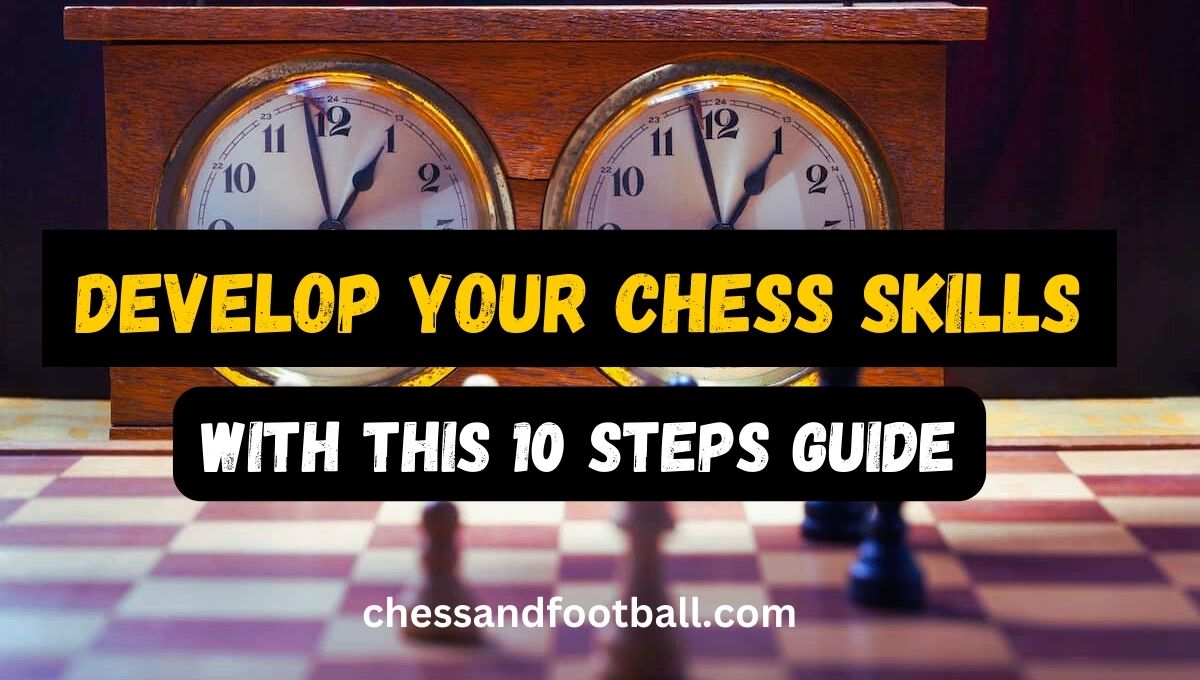Chess skills can be developed using several different ways. People like Hikaru Nakamura initially achieved the International Master level just by playing a lot of games. Gukesh, the Indian GM used a chess engine to analyze his games only after achieving the Grand Master level.
But that’s not a common path many top chess players share. Nor is it a lost hope that those individuals are naturally better than you. You can do your own hard work and become a top level player, at least, for the club level or your local chess gatherings.
If you are serious and want to go from rookie to master in chess, this 10 step guide is guaranteed to help you a lot.
1. Know the Basics: Before fancy tricks, learn the rules, how pieces move, and chess talk. Websites like ChessKid make it fun!
2. Play Like Crazy: Play chess like it’s hot! Online, offline, with anyone. Learn from their moves, even if you lose. It’s all practice! It will build your board vision.
3. Be a Tactics Ninja: Tactics are hidden traps that turn boring games into winning moves. Practice puzzles every day to spot forks, pins, and other sneaky tricks. Chess Tempo has tons of puzzles for all levels.
4. Learn from Your Battles: After each game, be your own detective. See what you missed, where you messed up, and what you could’ve done better. This is like your personal chess dojo, making you a smarter player.
5. Open Strong: Openings aren’t about memorizing boring stuff, but about smart strategies. Control the center, develop your pieces, and keep your king safe. Chessable has interactive courses to show you how.
6. Master the Middlegame: This is where things get exciting! Learn about pawn structure, piece activity, and king safety. Practice things like sacrifices and attacks to gain an edge and win. Watch games of middlegame masters like Capablanca to see how they do it.
7. Conquer the Endgame: Don’t think the game is over when there are few pieces left! Master basic checkmates, rook and pawn endgames, and queen endgames. Knowing how to win from tricky positions makes you a true chess warrior. Lichess has interactive endgame lessons to help you practice.
8. Walk with Giants: Learn from the best like Kasparov, Carlsen, Fischer, and Judit Polgár. See how they think, make decisions, and use brilliant tactics. Studying their games takes your chess to a whole new level. Chess24 has annotated games with expert explanations.
9. Train Your Brain: Chess is about thinking sharp as well as playing smart. Do brain games, puzzles, or even meditation to boost your concentration, memory, and analysis skills. A focused mind makes better chess moves.
10. Find Your Chess Tribe: Don’t go it alone! Join chess clubs, online forums, or talk chess with friends. Share ideas, challenges, and victories. This keeps you motivated and learning fast. Reddit’s r/chess is a great place to meet other chess lovers.
Remember, chess is a lifelong journey, not a race. Enjoy the learning, celebrate small wins, and don’t get discouraged by losses. Keep playing with joy and curiosity, and you’ll soon be conquering squares like a true chess master! Now go forth, young warrior, and claim your victory!
